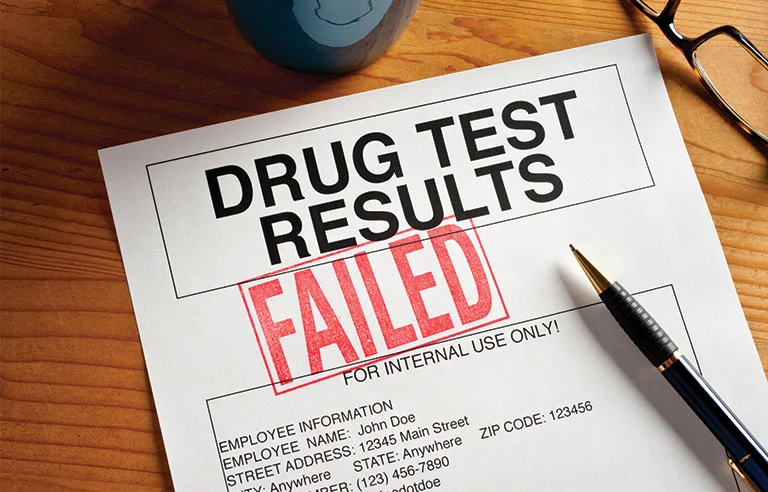If you are an athlete or work in the public service industry, you are likely familiar with drug testing procedures. Lately, private companies have also begun implementing drug testing for their employees. These tests are not solely focused on HHC but primarily aim to detect the presence of THC, a psychoactive compound found in marijuana.
Reasons For A Drug Test in Various Fields
Drug Testing in Athletics
Drug testing in the world of sports, particularly in athletics, is crucial for maintaining fairness and integrity. It helps to create a level playing field and ensures that all competitors adhere to the same rules and regulations. Athletes are subject to random drug tests, especially before and after significant events, to identify any illegal substances, including THC. The detection of THC in an athlete’s system can lead to severe consequences, such as disqualification, suspension, or loss of endorsements.
Drug Testing in Public Service Industry
In the public service sector, drug testing plays a pivotal role in upholding safety and competence standards. Employees in professions like law enforcement, firefighting, emergency medical services, and others are often entrusted with the well-being of the public. Drug tests are regularly conducted to ensure that these individuals are fit for duty and not impaired by any illicit substances; THC is one of them.
Drug Testing in Private Companies
In recent years, private companies have recognized the importance of drug testing as part of their employment screening process. Implementing drug testing policies helps businesses reduce potential liabilities, maintain a productive workforce, and promote a drug-free work environment. While the focus is on THC detection, it is essential to remember that the tests are not meant to invade employees’ privacy but rather to ensure they can perform their duties responsibly and safely.
The efficacy of drug tests can significantly influence the consequences of past THC use for individuals working in various fields. The type of drug tests conducted and the duration of THC detection in the body, which can extend up to 12 weeks (3 months), play a pivotal role in determining the potential risks to one’s career.
Importance of Knowing Drug Testing Policies
It is crucial for employees to be well-informed about their company’s drug testing policies. Understanding the type of tests conducted and the associated detection periods can help individuals make informed decisions about their substance use and take appropriate precautions.
The increasing popularity of HHC (Hexahydrocannabinol) and its association with THC (tetrahydrocannabinol) testing have raised significant concerns among users. As HHC gains traction as an alternative to THC, individuals are becoming more cautious about potential repercussions related to drug tests.
The Rise of HHC and THC Testing
HHC, a compound that purportedly exhibits similar effects to THC, has garnered attention in various communities. Users, especially those subject to drug testing, are intrigued by HHC’s potential benefits while being apprehensive about potential THC detection in their system.
Employment and Legal Implications
For individuals in professions where drug testing is a norm, such as athletics, public service, or safety-sensitive industries, THC detection can have severe consequences. Even if HHC is legal and not explicitly tested for, the inability of drug tests to distinguish between THC and other cannabinoids raises concerns about unintentional THC-positive results.
Uncertainty in Drug Testing
Drug tests typically aim to identify THC metabolites in the body, indicating past marijuana use. However, these tests might also detect other cannabinoids with similar structures, leading to false positives. This uncertainty in drug testing results can cause distress among HHC users who wish to avoid any association with THC.
Legality and Changing Regulations
HHC and THC legality varies in different jurisdictions. While some regions permit HHC use, THC remains illegal, complicating the situation for users who want to ensure compliance with the law. Additionally, the legal status of these compounds is subject to change, creating further uncertainties.
Impact on Personal and Professional Lives
The fear of a positive drug test can have profound effects on an individual’s personal life and professional aspirations. Job security, career growth, and personal reputation are at stake, making it essential for HHC users to consider the potential risks carefully.
What Is HHC (Hexahydrocannabinol)?
The quick answer to the question, What is HHC? is a hemp-derived cannabinoid known for its elevating properties akin to delta 9 THC but at a slightly lower potency. With its ability to induce relaxation and a sense of well-being, HHC presents an intriguing alternative for users seeking a milder psychoactive experience. Scientists have developed methods to create HHC products from the minimal amounts naturally occurring in the hemp plant, offering potential options for further exploration and utilization.
The use of HHC as an alternative to THC (tetrahydrocannabinol) has gained traction among individuals seeking the pleasant and relaxing effects associated with cannabis. HHC users believe that it offers similar benefits without causing cerebral fogginess, and a key advantage is its purported ability to evade detection in drug tests.
The Quest for THC-like Benefits
Many individuals are drawn to the psychoactive effects of THC, which induce feelings of relaxation and euphoria. However, the accompanying cerebral fogginess and impairment may not be desirable for everyone, especially those who wish to remain clear-headed during their daily activities. HHC emerges as a potential solution, promising comparable benefits without drawbacks.
Avoiding Cerebral Fogginess
Cerebral fogginess, often referred to as “brain fog,” can impair cognitive function and hinder productivity. HHC offers an appealing option for individuals looking to alleviate stress or anxiety while maintaining mental clarity. Many users believe that HHC allows them to maintain focus and alertness while experiencing relaxation and emotional balance.
The Appeal of Undetectability in Drug Tests
One of the most significant draws of HHC is the claim that it remains undetected in standard drug tests. As THC testing continues to be a concern for individuals in various professions and industries, HHC provides an alternative that may alleviate worries about inadvertent THC-positive results. However, it is essential to approach this claim with caution as drug testing technologies and methodologies evolve over time.
How Does HHC (Hexahydrocannabinol) Work?
The similarity between HHC (Hexahydrocannabinol) and THC (Tetrahydrocannabinol) in their interactions with the endocannabinoid system (ECS) is a crucial factor to consider when it comes to drug testing. As close relatives, HHC and THC share similarities in their effects on the ECS, which could lead to a positive drug test result.
One of the primary reasons for HHC’s similarity to THC is its selective targeting of CB1 receptors. CB1 receptors are primarily located in the brain and central nervous system, playing a vital role in mediating the psychoactive effects of cannabinoids.
How Does HHC (Hexahydrocannabinol) Metabolize?
The purpose of drug tests is to identify particular substances or their metabolites present in the body. Metabolites are the byproducts formed when the body breaks down compounds or substances, and they often linger in the system longer than the original compounds. When a drug test is conducted, it aims to identify specific metabolites in the body which are indicative of drug use. These metabolites serve as evidence that a particular substance has been ingested, providing insights into an individual’s recent or past drug consumption.
Metabolites tend to stay in the body for a more extended period compared to the original compounds. This prolonged presence is crucial in drug testing, as it allows for the detection of drug use even after the effects of the original compound have worn off. As with THC, it is plausible to assume that HHC’s breakdown would result in specific metabolites. For example, the metabolite THC-COOH is left behind after the breakdown of delta 9 THC. Similarly, there may be identifiable metabolites associated with HHC use that could be detected in drug tests.
How Long Does HHC (Hexahydrocannabinol) Stay In Your System?
The concern of drug testing after using HHC depends on the duration HHC remains detectable in the body. HHC metabolites can persist anywhere from 1 day to 30 days, influenced by several factors such as frequency of use, age, metabolism, concentration, and consumption method.
Metabolism and HHC Detection
Metabolism plays a significant role in determining how long HHC remains detectable in the system. Individuals with faster metabolisms may eliminate HHC and its metabolites more rapidly, reducing the detection window in drug tests.
Frequency of HHC Use
The frequency of HHC consumption can influence the accumulation of its metabolites in the body. Regular users may have a more extended detection window compared to infrequent users, as the metabolites can build up over time.
Age
Age can impact drug metabolism, with younger individuals generally metabolizing substances faster than older individuals. This can affect the duration of HHC detection, with older users potentially having a longer detection window.
The concentration of HHC
The concentration of HHC in the product used can also affect its detectability. Higher concentrations of HHC may lead to a more extended detection window, as more significant amounts of the compound and its metabolites are present in the body.
Consumption Method
The method of HHC consumption can influence the speed at which it is absorbed and eliminated from the body. Inhalation methods like vaping or smoking may result in quicker effects but may also lead to faster elimination compared to oral consumption.
Does HHC (Hexahydrocannabinol) Show Up On A Drug Test?
Two Reasons for False Positive Results in HHC (Hexahydrocannabinol) Drug Testing.
Production of Similar Metabolites as THC
The metabolic breakdown of HHC is believed to be similar to that of THC, but scientific evidence regarding the specific metabolites produced by HHC remains limited. While some anecdotal accounts suggest individuals have tested positive on drug tests after using HHC, others report negative results. The absence of concrete evidence regarding HHC metabolites raises uncertainty about its potential to trigger false positives.
Contamination of HHC Products with THC
Another crucial factor contributing to false positive results is the possibility of THC contamination in certain HHC products. While reputable brands may ensure their HHC products are free from THC, others may intentionally incorporate small amounts of THC to create a “multiple cannabinoid” effect. Such formulations can inadvertently lead to THC presence in the system, potentially causing a false positive result during drug testing.
Conclusion
The question of whether HHC (Hexahydrocannabinol) will cause a failed drug test has no straightforward answer. While the short and simple response is “Yes,” the reality is more complex due to the similarities between THC and HHC and the intricacies of drug testing procedures.




